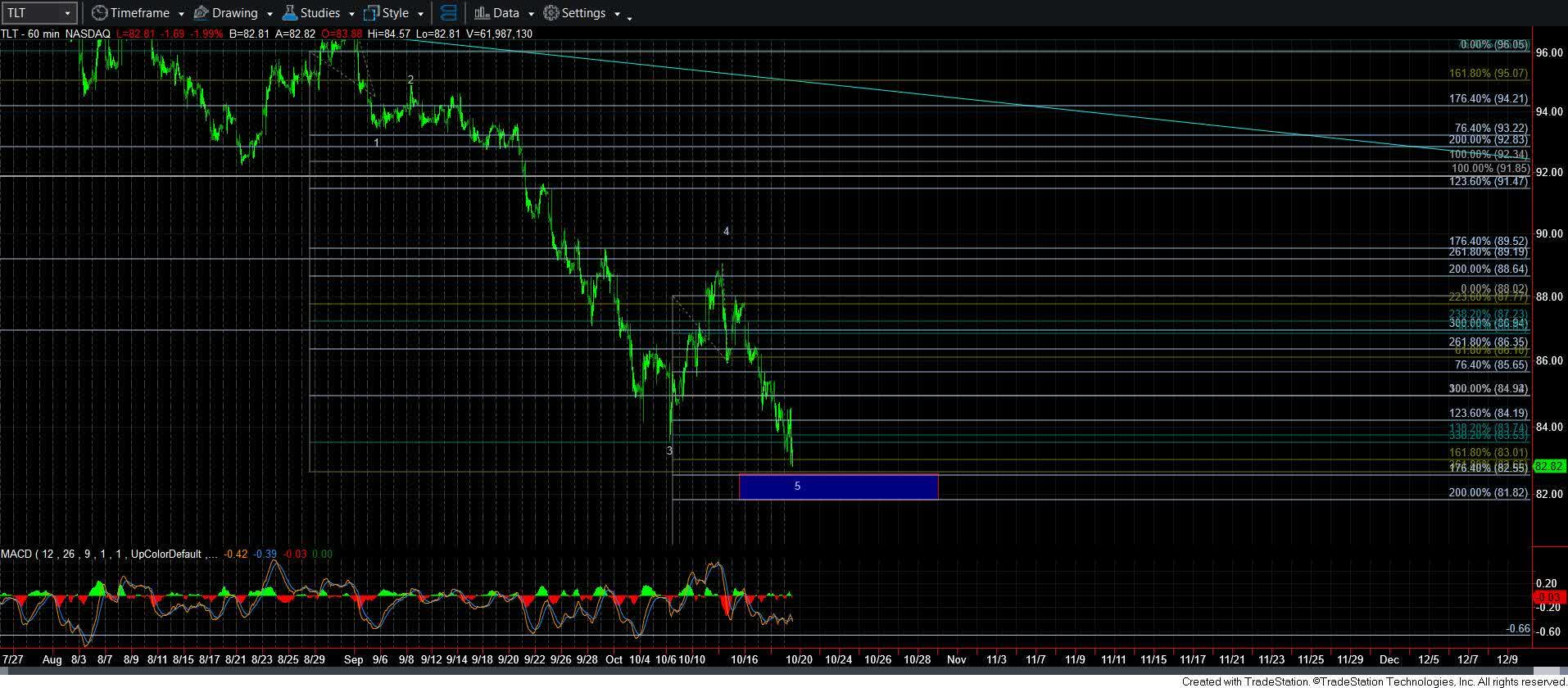As we are nearing the end of 2023, I wanted to take a moment to look back at 2023, and then look forward to 2024.
If you followed my work at the end of 2022, you would know that we not only called the bottom in mid-October of 2022 in the 3500SPX region, but we were focusing on a rally that would point us to the 4300-4500SPX region in 2023. And, if you read my articles through 2023, you would know that I was quite consistent in calling for a rally to 4300+ in just about every article that I wrote about the market.
Yet, ever since the lows back in October of 2022, I was told by more commenters than I can now count that such a rally was basically an impossibility since the “fundamentals” did not support such an expectation. But, as I have constantly reiterated for the 12+ years I have been writing public articles, fundamentals will more often than not have you looking in the wrong direction when it comes to the stock market, especially at the major turning points. And, it will likely do so again in 2024.
I have outlined my views in these articles, and they are certainly worth the time to read at least once:
Sentiment Speaks: Aren’t We Here To Make Money?
How To Analyze Market Sentiment Along With Market Fundamentals
As I look back to the past year, the main factors that had most investors entrenched in bearish perspectives were interest rates and the Fed. Many were looking for interest rates to continue higher, and the Fed to continue raising rates.
Of course, everyone “knows” you can’t fight the Fed. So most remained bearish of the stock market due to their belief that rising rates will kill the stock market, and that the Fed has its thumb holding down the stock market. This is all based upon their linear view of the market through the lens of mechanical causes and effects.
But, for those of you that have followed my analysis through the years, you would know that I am neither a believer in the common fallacy that you cannot fight the Fed, nor in a mechanical cause and effect market paradigm. We have fought that fallacy and the Fed many times through the years and have won. And, 2023 was just another example. The simple truth is that no one – not even the Fed – can fight the market, as the Fed simply follows the market.
Meanwhile, I outlined to members my expectations for a potential bottom in the TLT (even though the Fed maintained its perspective of continued rising rates), as you can see from this chart presented in real time:
Elliottwavetrader.net
As we now know, TLT bottomed at 81.92, and within 10 cents of the bottom of my support/target box. The main reason was simply that we were completing a 5-wave structure, which was the final stage of our completing a very large decline off the 2020 high. And, that 5-wave structure was completing a bearish extreme in the market, which told me to expect an impending market reversal.
My larger degree expectation was that we would begin to rally back to the 100 region, likely on our way to the 120 region into 2024. And, of course, this was many months before the Fed said it was going to cut rates. And, it now seems that the Fed has once again followed the market, as its recent announcement of rate cuts is now almost two months after we caught the bottom in TLT.
Yet, interest rates seemed to freak out most investors through 2023. The assumption they maintained was that higher interest rates (with the Fed resultingly raising rates) would prevent the market from rallying. This is the typical linear and correlative mechanical cause and effect analysis maintained by most investors and analysts. And, it kept them mistakenly bearish of the stock market throughout all of 2023.
So, I am going to now shock you, so please make sure you are seated before you continue to read on. When the stock market struck its low on October 13, 2022, the TLT (an ETF representing bond prices and interest rates) was in the 99 region. Today, as the market is hovering just north of the 4700SPX region (34% higher), the TLT is in the 99 region.
Please read that again once you are able to pick your jaw up off the floor. The TLT is now in the exact same place it was when the market bottomed 1200 points lower. In fact, most of you probably have missed this 20% rally in TLT off the low because you were too entrenched in the correlative expectation trumpeted by most market participants and analysts that rates were going to continue to march higher. And, the same people likely missed most of this 34% rally off the October 2022 low for the same reason.
Unfortunately, most investors and analysts are too often engaged in this type of inter-market/correlative analysis. So, let’s look at this a bit more carefully. Here is the explanation of intermarket analysis from Investopedia:
“Intermarket analysis is a method of analyzing markets by examining the correlations between different asset classes. In other words, what happens in one market could, and probably does, affects other markets, so a study of the relationship(s) could prove to be beneficial to the trader.”
It sounds like a great theoretical way to approach the market, does it not? In fact, it is how many of you actually view markets. The only problem is that it does not work in the real world and will certainly not help you at major turning points. But, why bother with facts when a good story sounds so much better!?
If you are being honest with yourself, I think this should now be clearly evident to those of you that were using this paradigm to develop your expectations for the stock market in 2023. It kept so many terribly bearish for most of 2023. If you would like to learn a bit more about why I avoid this type of correlative/intermarket analysis, you can read an article I wrote earlier in 2023, wherein I explain the underlying perspective of how correlations appear and disappear, seemingly without warning:
Sentiment Speaks: Can The Market Now Head To New All-Time Highs?
Let’s move on to my views of the market.
While I expected the rally from the 4100SPX region in October of 2023, my main target was the 4350-4475SPX region. And, admittedly, I did turn neutral the stock market once we got to that target. The main reason was that I wanted to see how the market was going to progress in order to determine if we were going to get a break-out over 4607, which would point us to 4800+, or if we would set up a bearish pattern into early 2024. I thought the prudent path would be to let the market provide the next clue before acting again.
Clearly, the market chose the break-out scenario. So, I added certain individual stocks that had nice upside potential, as I outlined to our clients over the last few weeks.
The SPX has now travelled further than I had initially expected last week, as I did not initially expect that we would exceed 4703SPX last week. Ideally, I would still like to see more of a pullback before we continue in the rally to 4800+.
However, I am no longer as certain that we will get the larger pullback that I wanted to see. If we are unable to break down below 4610SPX in the coming two weeks and before we see a major break out through 4750, then I was clearly wrong about my expectations for a bigger pullback into the end of the year before we rally to 4800+.
While I certainly strive to be correct regarding all the analysis I provide, I am clearly an analyst and not a prophet. Therefore, while we certainly have a very high percentage of correct calls in our market analysis over the last 12 years, I simply cannot be right all the time.
You see, I use the standards generated by our Fibonacci Pinball method of applying Elliott Wave analysis to determine my expectations in the market. And, those standards have caught just about every major turn in the markets we follow during the 12 years we have been publishing our analysis publicly, as well as kept us out of major market declines (even shorting some, like the 2020 crash). As one of my 10-year+ clients recently noted:
“The number of different markets, i.e., TLT, Metals, Oil, IWM, SPX etc.., that you have absolutely nailed over the years is legend.”
But, in the minority of circumstances, markets will move outside of those standards. And, the market rally off the 4100SPX low region we called has not provided us any pullback that even approached a .236 retracement throughout the rally. This is well outside of norms and standards we follow, and is clearly not something I would be able to foresee unless I was a prophet. In fact, even the rally off the 2020 low (which we also called) provided more retracement than the current rally we are seeing.
So, the reasonable expectation is to see a standard pullback into the end of the year and maybe into early 2024 before we continue to our long-term targets north of 4800SPX. But, unless the market is able to break down below 4610SPX in the coming weeks, then it becomes a much greater probability that we do not see the standard type of pullback I would normally expect from such a rally.
As I said in my public article last week, I think a “reasonable” target for the rally into 2024 would be the 4883-5163SPX region. And as the market takes shape in the coming weeks, we can probably narrow that target down a bit.
But, I want to warn you not to get too comfortable in your bull suits. Once this rally completes, it will likely conclude not only the 5-wave structure off the October 2022 low, and not only complete the 5-wave structure off the 2020 low, but it will likely conclude a larger 5-wave structure off the March 2009 low, and even conclude a much larger 5-wave structure off the 1932 low. In other words, we are approaching what can be the conclusion of a major multi-decade bull market, just as most are going to turn quite bullish in 2024.
Moreover, if we are tracking this properly, then the initial turn down once we complete this structure could be quite powerful, and point us back down to the 3500-3900 region quite quickly. So, while we can likely enjoy more upside as we look towards the first quarter of 2024, this party may end while many believe it is just beginning. So, as we move north of 4800SPX into 2024, you may want to consider tightening up your stops on your long positions.
Lastly, I have been providing a lot of public analysis regarding my view of how dangerous bank balance sheets are presenting. And, while the 2008 financial crisis was driven by one main factor, the next banking crisis actually has several factors which will potentially make it much worse than 2008.
So, while the market is now presenting us with a period of calm and relative safety, it would behoove many of you to be seriously considering which banks are holding your hard-earned money before what I am seeing of the future becomes publicly evident as a current reality, and the proverbial doodoo begins to hit the fan. By then, it may be too late to act.
We have outlined our view of the issues we see in the banking industry here for those of you that are interested. And, I strongly urge all of you to be “interested,” as you are the only ones who will be able to protect your hard-earned money.
Safer Banking Research Articles
“By failing to prepare, you are preparing to fail.” – Ben Franklin
***********





